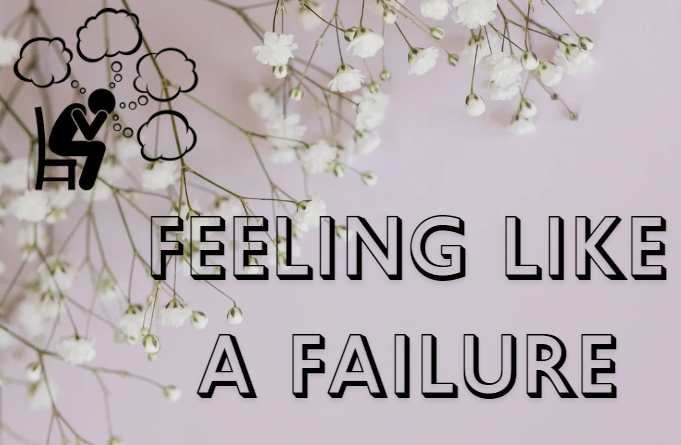Failure is an integral part of the human experience, often serving as a catalyst for growth and self-improvement.
When the sting of defeat lingers, it can cloud judgment and impede progress. We aim to provide actionable strategies for those grappling with feelings of inadequacy and defeat.
By implementing these methods, individuals can begin to cope with their emotions constructively and regain their footing after a setback.
5. Recognizing Failure as a Part of Growth

Accepting failure as an inevitable part of life is the first step toward coping with it effectively. It’s a universal experience, yet many struggle with acknowledging its role in personal and professional development. Acceptance doesn’t mean resignation; it means understanding that setbacks are not final or defining.
By embracing this reality, one can begin to alleviate the self-imposed stigma associated with failure. This acceptance allows for a more rational evaluation of what went wrong and why. It’s a process that involves separating one’s self-worth from the outcome of a particular endeavor.
When failure is seen as a natural outcome of trying, it loses its power to induce lasting negativity. This shift in perception paves the way for a more balanced emotional response to future challenges.
Extracting Lessons from Failure
Every failure carries with it the seed of an equivalent benefit—a lesson to be learned. It’s through mistakes that one often gains the most profound insights. The key is to actively seek out the lessons inherent in every unsuccessful attempt.
This may involve analyzing the situation to understand what factors contributed to the outcome and considering how to adjust strategies moving forward. The process of learning from failure can be systematized by asking oneself a series of questions: What worked? What didn’t? How can I improve?
By methodically dissecting the experience, one can extract valuable insights that contribute to personal growth. This approach not only builds knowledge but also empowers individuals to approach future endeavors with increased confidence and competence.
4. Shifting Your Perspective

The narratives we tell ourselves about our experiences significantly influence our emotional well-being. Reframing involves altering these internal dialogues to view failure in a more constructive light.
Instead of labeling an unsuccessful attempt as a personal shortcoming, one can choose to see it as a stepping stone or a redirection to a potentially better path. Practical reframing techniques include positive self-talk and affirmations that focus on potential and effort rather than on the unsuccessful outcome.
This cognitive restructuring helps in forming a more resilient mindset that is less susceptible to the negative emotional impacts of failure.
Contextualizing
To contextualize failure is to place it within the larger narrative of one’s life. It’s about recognizing that a single setback does not define the entirety of one’s journey. By zooming out and viewing the situation from a broader perspective, the relative significance of the failure often diminishes.
- Paths to success are rarely linear; setbacks are often critical waypoints.
- A broader view fosters a sense of continuity and purpose.
- This perspective can be comforting during times of doubt.
- Maintaining this view helps keep individual failures in check.
- It prevents setbacks from overshadowing larger goals and achievements.
3. Building Resilience
Emotional resilience is the ability to adapt to stressful situations or crises. It’s the inner strength that helps individuals bounce back from setbacks. Building resilience is a proactive process that involves developing certain thought patterns and behaviors that make it easier to recover from failures.
One can cultivate resilience by maintaining a hopeful outlook, setting realistic goals, and nurturing a strong self-image. It also involves practicing self-compassion, allowing oneself to experience emotions without judgment, and then moving forward with a constructive attitude.
Resilience doesn’t eliminate stress or erase life’s difficulties, but it does provide the tools to recover and continue moving forward.
Fostering a Resilient Environment
The environment one creates and the company one keeps can significantly influence the ability to deal with failure. Surrounding oneself with supportive people who offer encouragement can make a substantial difference.
This network can provide different perspectives, advice, and the emotional support needed to overcome setbacks. Creating a resilient environment also means seeking out and utilizing resources that can help in times of failure.
This could include books, workshops, or online communities that focus on personal development and resilience training. By fostering an environment conducive to growth, individuals can ensure they have the support and resources needed to cope with and ultimately benefit from their experiences with failure.
2. Engaging in Self-Care

Physical health has a profound impact on one’s ability to handle stress and bounce back from failure. Engaging in regular physical activity, maintaining a balanced diet, and ensuring adequate sleep are foundational aspects of self-care that can enhance one’s mood and energy levels.
- Regular exercise can serve as a stress reliever and confidence booster.
- A balanced diet provides the nutrients necessary for brain health and overall well-being.
- Adequate sleep is crucial for cognitive function and emotional regulation.
Nurturing Mental and Emotional Well-being
Taking care of one’s mental and emotional health is just as important as physical health when coping with feelings of failure. Practices such as mindfulness, meditation, and journaling can help maintain mental clarity and emotional balance.
- Mindfulness and meditation can reduce stress and promote a state of calm.
- Journaling offers a way to express emotions and reflect on experiences.
- Therapy or counseling provides professional guidance and strategies to cope with failure.
1. Seeking External Support
Humans are inherently social beings, and connecting with others can provide comfort and perspective when dealing with failure. Sharing experiences with friends, family, or peers can lead to feelings of solidarity and reduce the sense of isolation that often accompanies failure.
Engaging in community group therapies or online forums where individuals can share and discuss their challenges can also be beneficial. These connections can provide emotional support, practical advice, and sometimes, just a listening ear can make a significant difference.
Professional Help
Sometimes, the weight of failure can be too much to handle alone, and it may be necessary to seek professional help. If feelings of failure are persistent and significantly impact one’s quality of life, it may be time to consult a mental health professional.
Professionals can offer tailored strategies to cope with failure and provide support through therapeutic techniques. They can also help in identifying any underlying issues that may be contributing to these feelings. Seeking professional help is a sign of strength and an important step in taking charge of one’s mental health.
FAQs
How can I help a friend or family member who feels like a failure?
Support them by listening without judgment, affirming their feelings, and reminding them of their strengths and past successes. Encourage them to seek the positives in the situation and offer to help them plan a way forward if they’re open to it.
How can I change my mindset to view failure as a temporary setback rather than a permanent state?
Start by affirming that failure is a common part of learning and growth. Remind yourself of times when you’ve overcome obstacles in the past. Set small, achievable goals to build confidence, and celebrate progress, not just perfection.
Can too much focus on positivity be harmful when dealing with failure?
Yes, excessive focus on positivity can lead to invalidating genuine feelings of disappointment and frustration. It’s important to find a balance that allows for the acknowledgment of negative emotions while also fostering a hopeful outlook on future possibilities.
How do I know if my reaction to failure is out of proportion to the actual event?
If the intensity of your emotions is significantly disrupting your daily life or the reaction persists for an extended period, it may be disproportionate. Additionally, if your response is affecting your health or relationships, it might be time to reassess the impact of the failure on your overall well-being.
The Bottom Line
Feelings of failure are an inescapable aspect of the human experience, but they do not have to dictate the course of our lives.
The strategies discussed—acceptance, learning, reframing, contextualizing, building resilience, engaging in self-care, and seeking support—serve as a multifaceted approach to not only cope with failure but to harness it as a catalyst for growth and resilience.
It’s important to remember that coping with failure is a personal journey, and what works for one person may not work for another. It’s about finding the right combination of strategies that resonate with you and integrating them into your life.







